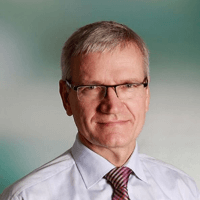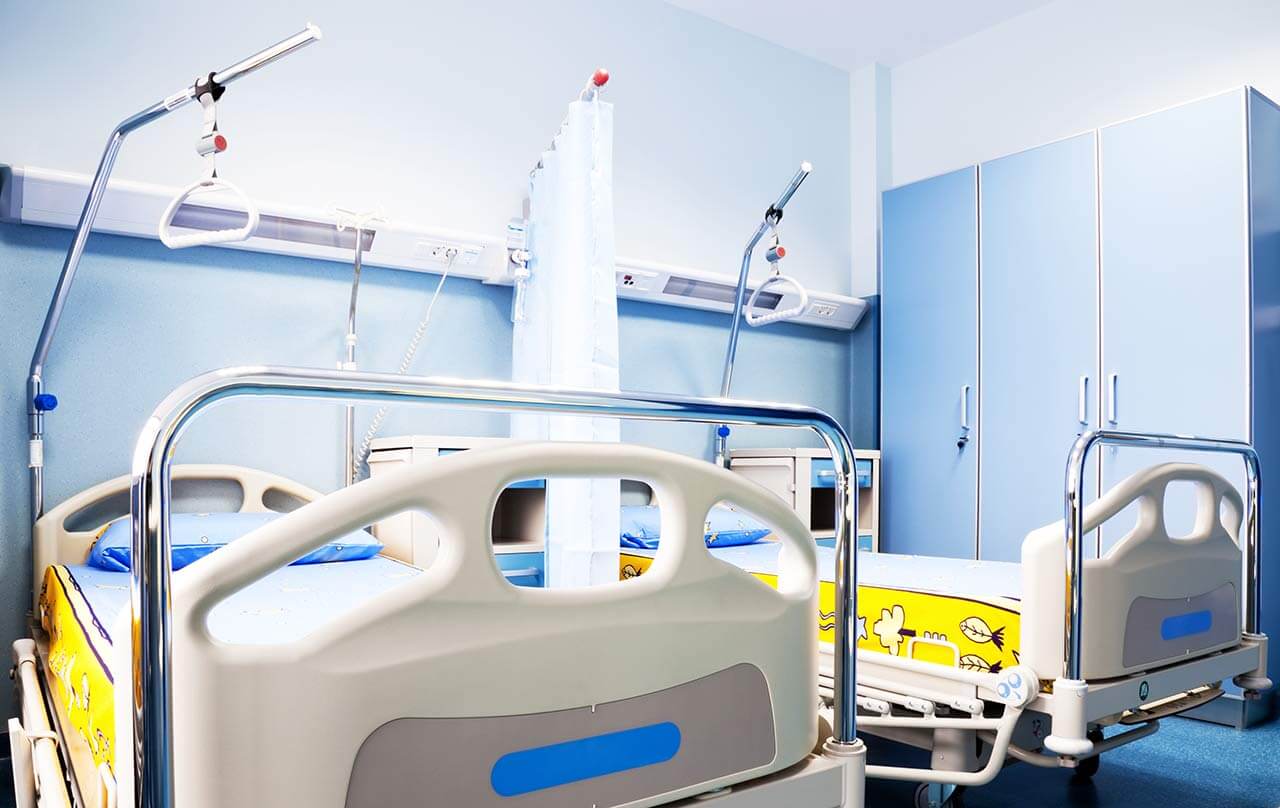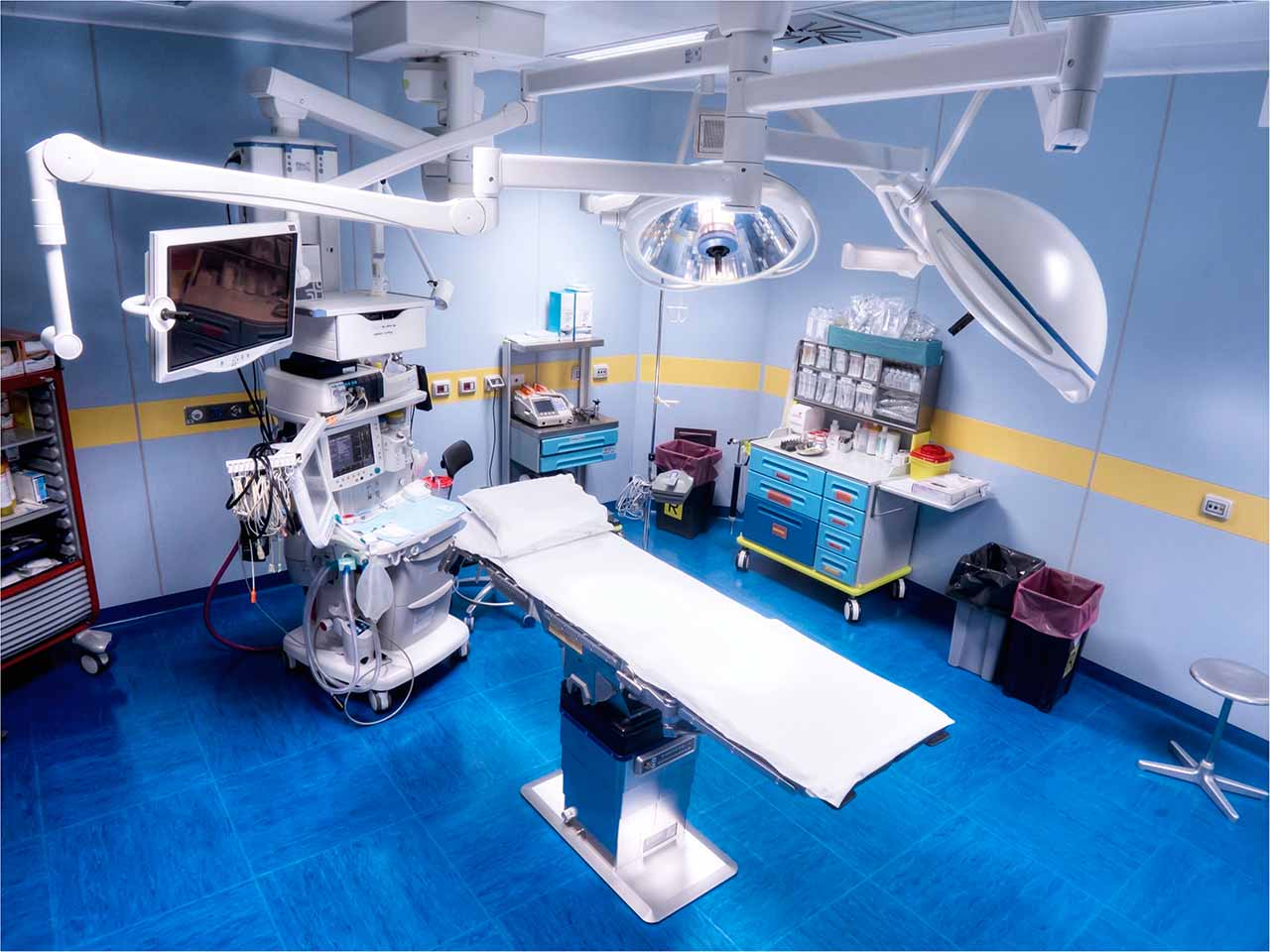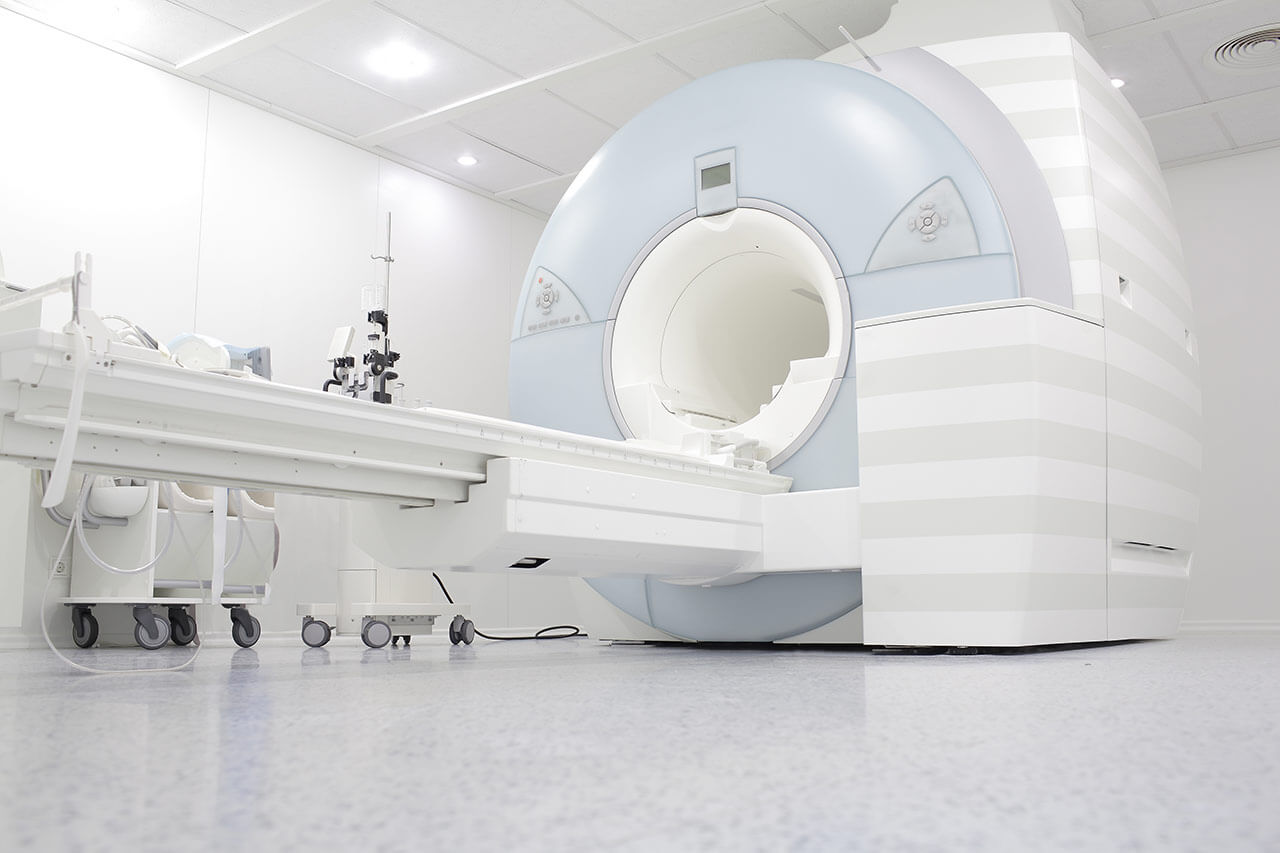
The program includes:
- Initial presentation in the clinic
- clinical history taking
- physical examination
- laboratory tests:
- complete blood count
- general urine analysis
- biochemical analysis of blood
- TSH-basal, fT3, fT4
- tumor markers
- indicators of blood coagulation
- CT / MRI scan of the abdomen
- abdominal ultrasound scan
- full course of radiotherapy
- nursing services
- consultations of all leading experts
- explanation of individual treatment plan
How program is carried out
During the first visit, the doctor will conduct a clinical examination and go through the results of previous laboratory tests and instrumental examinations. After that, you will undergo an additional examination, including complete blood count, laboratory assessment of liver and kidney function. Based on the received results, the physician will conduct radiotherapy planning with the help of CT or MRI, make the permanent tattoo marks on the skin and conduct CT simulation in order to assess the accuracy of the rays and the radiation dose. If necessary, related medical specialists will be involved in the elaboration of a treatment regimen (tumor board).
Radiation therapy is carried out as the day hospital procedure, without mandatory admission to the hospital. At each visit, the physician will assess your general condition and the marks on the skin. After that, you will be placed in a shielded radiation therapy room, on a special table.
Each radiation therapy session lasts less than half an hour (including preparation). All this time, doctors and nurses are monitoring your condition, you can communicate with them through a loudspeaker. The procedure is completely painless. Depending on the planned course of treatment, you will visit the hospital from 1 to 3-5 times a week.
After the completion of the radiation therapy course, you will undergo control examinations aimed at assessing your condition and efficacy of treatment. After that you will receive the medical report with detailed recommendations regarding further follow-up and treatment. In the future, you will be able to have a distant consultation with your attending physician and schedule the next course of treatment, if necessary.
Required documents
- Medical records
- MRI/CT scan (if available)
Service
You may also book:
 BookingHealth Price from:
BookingHealth Price from:
About the department
The Department of Pediatric Oncology, Hematology, Rheumatology, Endocrinology, Pulmonology, Neurology, Allergology and Infectology at the Asklepios Children's Hospital Sankt Augustin offers the full range of top-class medical services for young patients, from the very first days of life to adolescence. The department's team of doctors specializes in the diagnostics and treatment of a wide group of pathologies in children, including oncological and hematological diseases, rheumatic, endocrine, infectious, allergic and pulmonary diseases. The department has well-equipped diagnostic rooms, where doctors conduct all the modern instrumental, laboratory and imaging tests required for the assessment of the child's health. After studying the diagnostic data, each patient receives an optimal treatment regimen with the use of the very latest drugs and therapeutic procedures. To provide comprehensive medical care, the department includes various outpatient clinics and an interdisciplinary emergency care service. The health of young patients is in the safe hands of competent doctors with vast and successful clinical experience. The department is headed by Prof. Dr. med. Gerd Horneff.
A large number of visits to the department are for malignant blood diseases, as well as solid tumors of various localizations. The most common pathologies in hematology include various forms of anemia (for example, sickle cell anemia, Fanconi anemia, iron deficiency anemia), thrombocytopenia, leukemia, and malignant lymphomas. In the field of oncology, the department's specialists often deal with brain tumors. Malignant tumors in children have their own characteristics. Children often develop embryonic tumors that are independent of environmental influences, while carcinomas are extremely rare. All diagnostic and therapeutic procedures correspond to the protocols of the German Society for Pediatric Oncology and Hematology (GPOH). The very first stage of the therapeutic process is a comprehensive examination, which allows the doctors to make an accurate diagnosis and determine the most effective treatment tactics. When dealing with cancer treatment, an important role is given to interdisciplinary cooperation with related specialists. The treatment can be provided on both an inpatient and outpatient basis, as well as in a day hospital. When treating oncological and hematological diseases in children, the department's doctors most often use drug therapy – intake of pills or their intravenous infusions. If surgical treatment is required, highly specialized pediatric surgeons are engaged in the therapeutic process. Young patients and their parents receive care from psychologists: the treatment period is quite long and complex, which can negatively affect the psycho-emotional state. After the completion of therapy, the child undergoes regular follow-up examinations to prevent recurrences, as well as to assess their growth and development.
The department's specialists are also competent in the diagnostics and treatment of bronchial and lung diseases, including bronchial asthma, which is the most common chronic disease in children. To detect a respiratory disease and make an accurate diagnosis, doctors have in their arsenal all modern examinations. Diagnostic options include pulmonary function tests (spirometry, body plethysmography) at rest and during exercise (treadmill, methacholine challenge test, use of bronchodilators), imaging techniques (for example, X-ray and CT scans), bronchoscopy, allergy testing, etc. Based on the diagnostic results, the child is prescribed an individual course of drug therapy and effective inhalation procedures. The specialists also give recommendations on the elimination of factors that provoke asthma attacks (allergens, stress, overexertion).
The department employs a professional team of endocrinologists who specialize in the diagnostics and treatment of endocrine diseases, growth and puberty disorders in children. These pathologies can be congenital or acquired. The most common endocrine disorders in children are hypothyroidism, hyperthyroidism, autoimmune thyroid lesions (Graves' disease, Hashimoto's thyroiditis), growth disorders (short stature, gigantism), premature puberty and its delay, hypogonadism, adrenal cortex dysfunction, diabetes mellitus, morbid obesity and others. To detect endocrine disorders, doctors study the patient's medical history, carry out a general physical examination, laboratory tests, diagnostic imaging (ultrasound and X-ray scanning), functional hormone testing, etc. The first-line treatment is usually conservative therapy with medications. If diabetes mellitus is detected, doctors use insulin therapy, including with the help of modern pumps. Each treatment regimen is thought out to the smallest detail, which guarantees a successful result.
An integral part of the work of the department's doctors is the provision of medical care to children with rheumatic diseases that cause pain and mobility restrictions. The department's specialists have excellent professional skills in the treatment of juvenile idiopathic arthritis. This type of arthritis is one of the most common in children and develops before the age of 16. The treatment tactics are determined depending on the particular subtype of rheumatic disease, the stage of the pathological process, the causes of development and the presence of concomitant pathologies. The department's specialists actively use highly effective drug therapy regimens that allow the child to get rid of pain and joint stiffness. When developing a treatment regimen, the department's doctors take into account the risks of developing concomitant inflammatory processes in the intestines, pathological lesions of the blood vessels, skin and soft tissues.
The department's range of medical services includes:
- Diagnostics and treatment of rheumatic diseases
- Still's disease
- Early juvenile oligoarthritis (type I oligoarthritis)
- Arthritis caused by enthesitis (type II oligoarthritis)
- Seronegative polyarthritis (with normal rheumatoid factor levels )
- Seropositive polyarthritis (with elevated rheumatoid factor levels)
- Arthritis combined with psoriasis
- Diagnostics and treatment of congenital and acquired immunodeficiencies
- Diagnostics and treatment of lung and bronchial diseases (focus on the treatment of bronchial asthma)
- Diagnostics and treatment of hematological diseases
- All types of anemia
- Congenital thrombocytopenia
- Leukemia
- Malignant lymphomas
- Diagnostics and treatment of oncological diseases (focus on the treatment of brain tumors)
- Diagnostics and treatment of neuromuscular diseases
- Diagnostics and treatment of infectious diseases
- Diagnostics and treatment of allergic diseases
- Diagnostics and treatment of endocrine diseases
- Hypothyroidism
- Hyperthyroidism
- Autoimmune thyroid diseases (Graves' disease, Hashimoto's thyroiditis)
- Growth disorders (short stature, gigantism)
- Precocious puberty
- Delayed puberty
- Breast enlargement in boys (gynecomastia)
- Hypogonadism
- Adrenal cortex dysfunction
- Diabetes mellitus
- Morbid obesity
- Diagnostics and treatment of cystic fibrosis
- Diagnostics and treatment of other diseases in children and adolescents
Curriculum vitae
Education
- 1981 - 1987 Medical studies at the University of Cologne.
- 09.12.1987 Admission to practice medicine.
- 01.1984 - 12.1987 Scholarship granted by Maria Pesch Foundation, Cologne.
- 26.03.1989 Dissertation, Institute of Pharmacology at the University of Cologne. Subject: "Influence of pretreatment with nifedipine on experimental ischemia in the rabbit heart".
Professional Career
- 01.06.1988 - 30.11.88 Assistant Physician at the Children's Hospital in Cologne.
- 01.01.1989 - 31.12.1991 Scholarship from the German Research Foundation with research stay at the Institute and Department of Clinical Immunology and Rheumatology, Department of Internal Medicine III, University of Erlangen.
- 01.01.1991 - 31.07.1998 Fellow at the Center for Pediatrics, University of Duesseldorf.
- 25.04.1996 Board certification in Pediatrics.
- 12.1996 Appointment as Head Physician at the University Hospital.
- 12.06.1997 Habilitation and Venia legendi in Pediatrics by the Medical Faculty of the Heinrich Heine University Duesseldorf.
- 07.04.1998 Additional qualification in Allergology.
- 01.08.1998 - 01.07.2005 Senior Physician of the Department of Pediatric and Adolescent Medicine, University Hospital Halle (Saale).
- 08.11.2001 Deputy Head of the Department of Pediatric and Adolescent Medicine.
- 01.11.2004 Acting Head of the Department of Pediatric and Adolescent Medicine.
- Since 01.07.2005 Head Physician of the Department of Pediatric Oncology, Hematology, Rheumatology, Endocrinology, Pulmonology, Neurology, Allergology and Infectology at the Asklepios Children's Hospital Sankt Augustin.
- 01.02.2006 Additional qualification in Pediatric Rheumatology and appointed as Auditor of the Medical Association of North Rhine.
Scientific Awards and Grants
- Research Grant from the German Research Foundation (Ho1143/1-1 and Ho1143/1-2) and research promotion from the Federal Ministry for Research and Technology (BMFT): Multicentre clinical and theoretical research project "Pathomechanisms of immune and autoimmune diseases and the effects of endogenous immunomodulatory substances (FKZ 01 TO 8607/)".
- Therapy Week Award 1991 (together with Prof. Dr. med. G.R. Burmester and Prof. Dr. med. F. Emmrich). Subject: "Therapy of chronic polyarthritis with monoclonal antibodies against T-helper cells".
- Research promotion by industry: "Quality assurance in endocrine care of children and adolescents with chronic inflammatory and rheumatic diseases".
- Research promotion by industry: "Registry for long-term documentation of the use of Etanercept in childhood and adolescence".
Memberships in Scientific Associations
- German Society of Pediatric and Adolescent Medicine (DGKJ).
- Board Member, Saxon Thuringian Society for Pediatric and Adolescent Medicine.
- Founding Member, Working Group on Pediatric and Adolescent Rheumatology (AGKJR).
- Since 15.11.2003 Deputy Chairman of the Working Group on Pediatric and Adolescent Rheumatology (AGKJR).
- Committee for Drugs and Medication of the Society of Pediatric and Adolescent Rheumatology.
- Founding Member, European Society of Pediatric Rheumatology.
- Working Group on Pediatric Immunology.
- German Society of Rheumatology.
- Commission for Training Students of the German Society of Rheumatology.
- President, Working Group on Patient Education in Rheumatology of the German Initiative for the Rheumatic Children.
- First Chairman of the Rheumatology Center Aachen-Cologne-Bonn.
Reviewer and/or Editorial Board Member of the Journals
- Advisory Board Member of Journal for Rheumatology.
- Advisory Board Member of Rheumatology International.
Photo of the doctor: (c) Asklepios Klinik Sankt Augustin GmbH
About hospital
The Asklepios Children's Hospital Sankt Augustin positions itself as an ultramodern maximum care medical facility for children and adolescents. A distinctive feature of the hospital is the exceptionally high quality of medical service, a sensitive attitude and compassionate care for young patients. The hospital diagnoses and treats children of all age groups, ranging from premature infants to adolescents. The treatment is based on an integrated approach, whereas parents are also involved in the therapeutic process. They serve as a reliable support to their children.
The hospital is proud of its unique experience of more than 40 years. The hospital has 225 beds for the treatment of young patients on an inpatient basis. More than 9,000 inpatients undergo treatment here annually, and about 40,000 more children receive outpatient medical care. The number of patients of the hospital increases every year, which indicates the prestige of the medical facility in Germany and abroad.
The hospital has 15 specialized departments, including the Department of Pediatric and Adolescent Medicine, Pediatric Urology, Pediatric Cardiology, Pediatric Cardiac Surgery, Pediatric Orthopedics, Pediatric Neurosurgery. The medical team of the hospital consists of more than 850 employees. The department's doctors have excellent reputation in professional circles and make every effort to provide effective treatment.
In their clinical practice, doctors pay due attention to interdisciplinary cooperation, which allows them to cover the entire spectrum of pathologies in children, including complex and rare clinical cases.
The services of the hospital meet the most strict requirements of the German healthcare system. The quality of medical services is regularly monitored by external and independent expert commissions. Since 2009, the hospital has been awarded the "Ausgezeichnet. FÜR KINDER." certificate, which is the most prestigious one for pediatric medical facilities in Germany. In addition, the hospital has the "Aktion Saubere Hände" certificate that guarantees the maximum safety of treatment for young patients and the compliance of the hospital with the highest hygiene standards.
Photo: (с) depositphotos
Accommodation in hospital
Patients rooms
The patients of the Asklepios Children's Hospital Sankt Augustin live in comfortable rooms designed in bright colors. The standard room furnishings include an automatically adjustable bed, a bedside table, a wardrobe, and a TV.
Meals and Menus
The patients receive an individual, self-selected breakfast and dinner. Lunch is prepared centrally for all patients. Parents can dine at the on-site cafeteria.
Television
After agreeing with the parents and the medical staff of the hospital, young patients may watch TV in the rooms of their department. The rooms for parents also have TVs.
Religion
The hospital has a prayer room where young patients and their parents can be alone for prayer. Divine services are held on Wednesdays from 12:15 to 12:30.
Accompanying person
When treating children under the age of 7 years or if special care is necessary, one of the parents may stay for free in their child’s patient room (a separate bed is provided), meals are included. To do this, one should register in the appropriate department. In other cases, as well as for the second accompanying person, accommodation and meals should be paid separately (hostel for parents or apartments in Ronald McDonald Haus).




